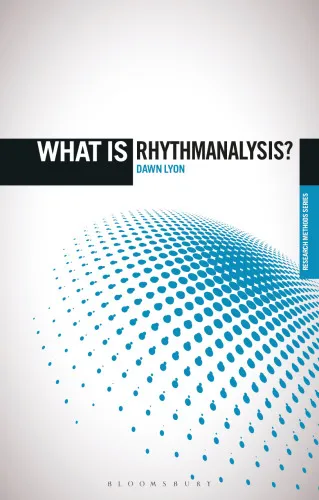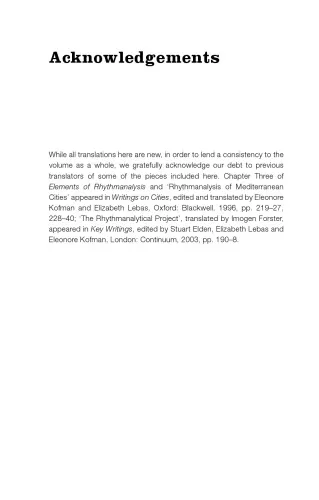Steps to an Ecology of Mind
4.6
بر اساس نظر کاربران

شما میتونید سوالاتتون در باره کتاب رو از هوش مصنوعیش بعد از ورود بپرسید
هر دانلود یا پرسش از هوش مصنوعی 2 امتیاز لازم دارد، برای بدست آوردن امتیاز رایگان، به صفحه ی راهنمای امتیازات سر بزنید و یک سری کار ارزشمند انجام بدینکتاب های مرتبط:
معرفی کتاب 'Steps to an Ecology of Mind'
کتاب 'Steps to an Ecology of Mind' نوشته گریگوری بیتسون یکی از مهمترین و مؤثرترین کتابها در زمینه تفکر سیستماتیک و نظریه ارتباطات است. این کتاب شامل مجموعهای از مقالات و سخنرانیهای بیتسون است که در طول دوران حرفهایاش در زمینههای مختلفی مانند انسانشناسی، روانپزشکی و نظریه اطلاعات جمعآوری شدهاند.
خلاصهای از کتاب
در این کتاب، بیتسون به بررسی نحوه عملکرد ذهن و تعامل آن با محیط میپردازد. او از اصول و مفاهیم سیستماتیک برای ایجاد یک دیدگاه جدید از ارتباطات، یادگیری و شناخت استفاده میکند. 'Steps to an Ecology of Mind' شامل مباحثی از جمله نظریههای ارتباطی، زبانشناسی، و رویکردهای روانشناسی شناختی است. هدف اصلی کتاب این است که نشان دهد چگونه الگوهای تفکر و سازوکارهای شناختی به تعاملات انسانی و درک ما از جهان شکل میدهند.
نکات کلیدی
- اهمیت درک ارتباط میان ذهن و محیط.
- نقش ساختارهای سیستماتیک در شناخت و یادگیری.
- تأکید بر پیچیدگی و تعاملات چندسطحی در سیستمهای زیستی و اجتماعی.
- ارائه ابزارها و مفاهیم مفید برای تحلیل و بررسی مسائل مرتبط با ارتباطات انسانی.
نقلقولهای معروف از کتاب
"The major problems in the world are the result of the difference between how nature works and the way people think."
"Without context, words and actions have no meaning at all."
چرا این کتاب مهم است؟
کتاب 'Steps to an Ecology of Mind' نه تنها به دلیل محتوا و ایدههای نوآورانهاش مورد توجه قرار گرفته است، بلکه به عنوان یک منبع اساسی برای پژوهشگران در زمینههای مختلف علمی و فکری شناخته میشود. این کتاب با ارائه یک دیدگاه جامع و سیستماتیک به ارتباطات و شناخت، به تغییری بنیادین در نحوه تفکر و تحلیل ذهن و محیط انجامیده است. با درک بهتر از پیچیدگیهای سیستماتیک و میانرشتهای، متخصصان قادر خواهند بود مسائل پیچیدهتری را در زمینههای خود حل کنند.
Introduction to 'Steps to an Ecology of Mind'
Gregory Bateson's seminal work, 'Steps to an Ecology of Mind', is a profound exploration of the interconnectedness of mind, nature, and culture. Published in 1972, the book is a collection of essays and lectures that traverse a range of disciplines, from anthropology and psychology to cybernetics and ecology. It presents a rich tapestry of thought that challenges conventional understandings and encourages a holistic view of human and non-human systems.
Detailed Summary of the Book
In 'Steps to an Ecology of Mind', Bateson introduces a methodology for thinking about complex interactions within systems. Drawing on his diverse academic background, each essay builds upon the last to weave a comprehensive narrative about the nature of cognition, communication, and the environment. The book is divided into various sections that address themes such as the processes of learning and evolution, the intricacies of language and metaphor, and the philosophical underpinnings of epistemology.
Bateson asserts that to truly understand the complexity of ecological and mental systems, one must adopt an integrative perspective that recognizes the mutual interdependence of all life forms. The book delves into cybernetic theory and systems thinking, presenting them as essential tools for comprehending the feedback loops and patterns that define our reality.
Throughout the essays, Bateson explores how human perception and thought processes can distort the way we interact with the world. He argues for a paradigm shift towards an 'ecology of mind' where the emphasis is placed on the relationships between entities rather than on the entities themselves.
Key Takeaways
- The interconnected nature of systems: Bateson emphasizes that all systems are part of a larger network, and understanding one element requires an understanding of its context.
- The limits of human perception: Bateson contends that human cognition is limited and that recognizing these limits is crucial for a more accurate understanding of the world.
- Cybernetics and feedback loops: The book illustrates how cybernetic principles apply to both biological and social systems, offering insights into their function and evolution.
- A new epistemological approach: Bateson proposes a shift from traditional cause-and-effect thinking to a more relational understanding of knowledge.
Famous Quotes from the Book
"The major problems in the world are the result of the difference between how nature works and the way people think."
"Without context, words and actions have no meaning at all."
"The pattern which connects is a metapattern. It is a pattern of patterns."
Why This Book Matters
'Steps to an Ecology of Mind' remains a pivotal work because it offers a framework for thinking that is increasingly relevant in today's interconnected world. As we face complex ecological, social, and technological challenges, the insights from this book encourage a systems-oriented approach to problem-solving.
Bateson's work is influential not only in the academic world but also in practical applications across various fields. By advocating for a broader perspective on how we interrelate with our surroundings, it invites readers to reconsider their impact on the world and the importance of sustaining harmonious relationships within the biosphere.
The book challenges us to rethink the separation between mind and nature, urging a move towards a more integrative and responsible way of living and thinking. Its enduring relevance highlights the necessity of an ecological perspective to navigate the complexities of modern existence.
دانلود رایگان مستقیم
شما میتونید سوالاتتون در باره کتاب رو از هوش مصنوعیش بعد از ورود بپرسید
دسترسی به کتابها از طریق پلتفرمهای قانونی و کتابخانههای عمومی نه تنها از حقوق نویسندگان و ناشران حمایت میکند، بلکه به پایداری فرهنگ کتابخوانی نیز کمک میرساند. پیش از دانلود، لحظهای به بررسی این گزینهها فکر کنید.
این کتاب رو در پلتفرم های دیگه ببینید
WorldCat به شما کمک میکنه تا کتاب ها رو در کتابخانه های سراسر دنیا پیدا کنید
امتیازها، نظرات تخصصی و صحبت ها درباره کتاب را در Goodreads ببینید
کتابهای کمیاب یا دست دوم را در AbeBooks پیدا کنید و بخرید
1551
بازدید4.6
امتیاز0
نظر98%
رضایتنظرات:
4.6
بر اساس 0 نظر کاربران
Questions & Answers
Ask questions about this book or help others by answering
No questions yet. Be the first to ask!

































